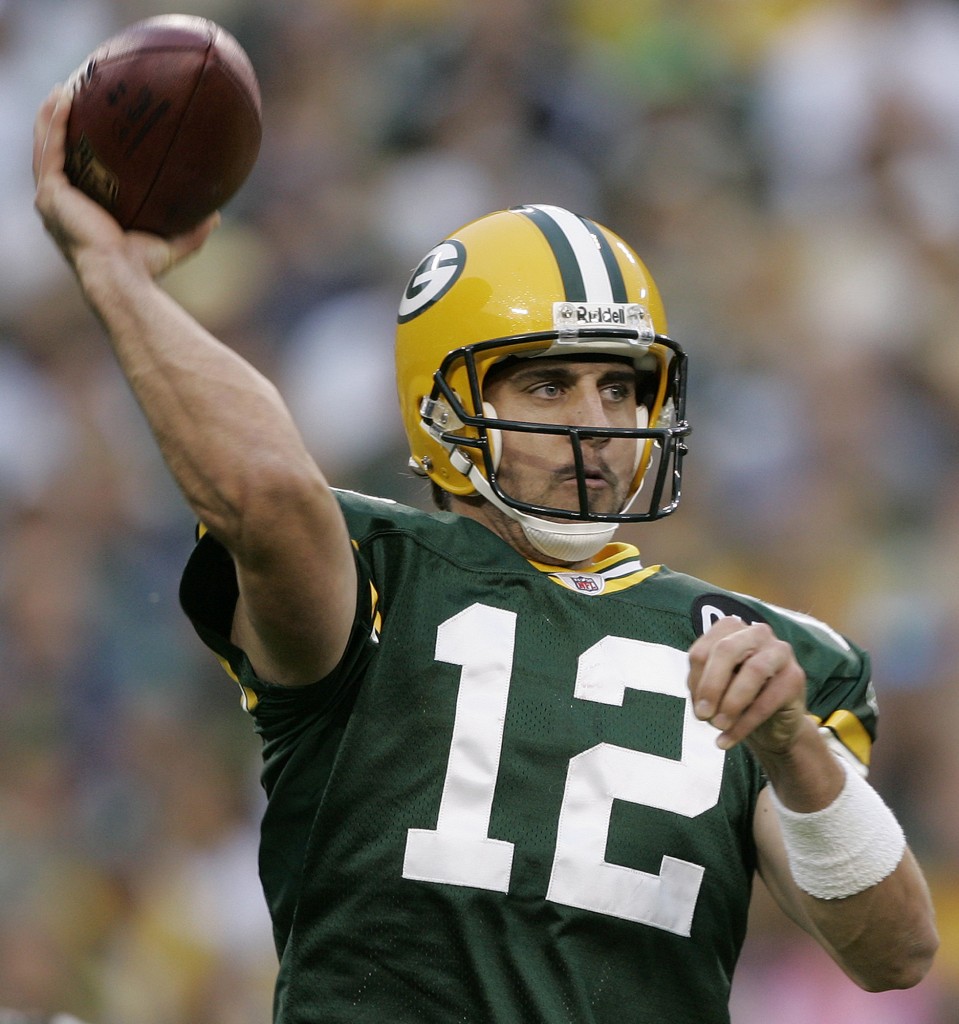Slow down, already.
Yesterday, Arizona Diamondbacks left fielder Gerardo Parra went 4-for-4 against the Houston Astros, making Parra the best hitter in the world by far. He batted 1.000, or 634 points higher than Ty Cobb’s record career average. Move over, Georgia Peach, there’s a new all-time greatest: baseball’s first perfect hitter. Parra’s historic achievement will doubtless lead every sportscast across the nation and put him on the cover of Sports Illustrated and possibly Time and Newsweek.
Don’t be ridiculous. One day means nothing. Any idiot knows you can’t look at batting averages over a 4-at-bat period and determine anything meaningful.
Are you sure? Because judging from the nationwide panic over Monday’s stock market drop, the extreme short term means everything.
Our nation’s debt got downgraded Friday, for the first time in history (which is to say, 90 years.) Which presumably means the United States will have to pay higher interest rates to borrow money in the future. Those interest rates will trickle down to the institutional and consumer levels, meaning we’re all going to be paying a few basis points more. The price of money goes up, less of us can afford to borrow, and the economy will stagnate all the more.
That much is likely true. But it’s not going to happen overnight, despite what Monday’s enormous market drop would indicate. Because once again, the market followed a gigantic fall with a massive rise. It almost always happens this way.
It’s tough for the rookie investor to believe this, and it’s tough for the seasoned investor to remember it, but…
Stock prices are nothing more than opinions. They’re values attached, via crowdsourcing, to intangible pieces of dynamic, vibrant corporations.
And collective human wisdom can sometimes be extremely short-sighted.
That’s “dynamic” and “vibrant” in the literal sense of those words, rather than their modern connotations. Those corporations aren’t necessarily growing richer and more powerful every day, but rather their worths continuously fluctuate.
Think about it. On Monday the Dow dropped 634 points, one of the 10 highest absolute falls in history (relative to its level, it didn’t make the top 30.) Take a random Dow component, i.e. one of the 30 stocks whose prices comprise the Dow Jones Industrial Average. (Read this if that makes no sense.) Caterpillar closed Friday at $91.09, shortly before the debt downgrade came down. CAT closed Monday at $82.60.
Step back for a minute. Does it make any kind of sense that one of America’s most venerable companies (its venerability ratified by its very place on the Dow), the world’s largest manufacturer of construction and mining equipment, became 10% less desirable to own in a single 8-hour period?
This is a company that grossed $14 billion in profit over the last year. CEO Doug Oberhelmen didn’t suddenly quit and name Russell Brand as his successor. The FDA didn’t find dangerous levels of peanut residue on Caterpillar’s lift trucks. For Caterpillar’s business operations, Monday was just another uneventful day.
But for Wall Street traders and their clients, news that has only an indirect impact on Caterpillar’s business has a direct impact on its stock price. The propensity of traders is to overreact. We just proved that 3 paragraphs ago: there’s no logical reason for a company to suffer a 10% drop in one day unless something cataclysmic happened to its business. Which of course, it didn’t.
On Tuesday, the day after a market sell-off that some ignorant commentators took as the precursor to brokers jumping out of windows (which never happened, not even on Black Monday in 1929), you’ll never guess what happened. The market rose historically, by 429 points. Caterpillar shares gained most of what they’d lost. Again, if you look at it with absolutely no perspective, did Caterpillar do anything to justify a 6% rise in its price, over one day? Of course not. But if you extrapolate that rise over another 10 weeks, CAT will be trading at $1455. This train’s leaving the station! Are you going to be on board?
Every time the market takes a wild daily swing, whether high (stocks just got more difficult for you to buy!) or low (your retirement account lost value!), step back. Don’t ignore the forest for the trees. Even a wild weekly swing is nothing to panic or get excited over. And maybe you should wait a couple of months before declaring a career .279 hitter with below-average power and no particular propensity for getting on base ready for the Hall of Fame.
Parra ran into a couple of pitchers having a bad night. Or perhaps he just swung, hoped for the best, and made contact via dumb luck. Or took advantage of a hungover third baseman playing out of position and begging that the ball not be hit to him. Either way, Parra is not going to be challenging Jose Reyes for a batting title on the strength of one irregular night. Nor is Caterpillar, or any other major corporation, on the brink of bankruptcy. Regardless of what your fellow investors tell you.
**This article is featured in the Totally Money Carnival #33**







